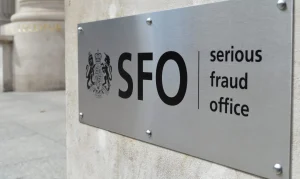Jonathon Goodwin has been involved in Solicitors Regulation for more than 20 years having prosecuted on behalf of the Solicitor’s Regulation Authority (SRA) and its predecessors, and has been involved in some of the leading cases relating to solicitors’ regulation. Here he offers invaluable insight into how to act when under investigation; he quotes: “The key is not to panic, but to seek advice as soon as possible”.
What are the most important actions to take when initially contacted by the SRA?
Faced with an investigation by the SRA or proceedings before the Solicitors Disciplinary Tribunal (SDT) many solicitors will feel overwhelmed, frightened and maybe asking the question: “Where on earth do I start?”. It is vitally important that solicitors should have regard towards protecting their ability to practice and to take all appropriate and necessary steps to give them the best possible chance of avoiding adverse consequences. Those subject to an investigation by the SRA or proceedings before the SDT, should seek expert advice, assistance and representation at the earliest possible stage.
What factors do the SRA often consider during their first initial steps of the investigation?
The SRA has the power to investigate those they regulate. The investigation may be commenced by an event within a firm, such as a report of misconduct, or complaint by a client or other party.
All relevant facts are collected which provides the solicitor under investigation with the opportunity to present an explanation. A failure to reply may lead to disciplinary action; the reply and other information provided may be used by the SRA for regulatory purposes.
This letter is referred to as Explanation with Warnings (EWW) letter. The response to the EWW is of crucial importance, as it will be relied upon by the SRA in reaching a decision as whether to further progress on the matter and in proceedings that commence before the SDT, in the event a referral decision to the Tribunal is made by the SRA.
The solicitor may also be subjected to a Forensic Investigation which will encompass consideration of the firms’ accounts, office systems and business arrangements, together with client files being reviewed and requests being made for further information and explanation as matters arise.
The investigation will often conclude with a final, recorded interview, which is another very important stage of the investigation process. The interview will be a summary of all matters identified as cause for concern. It can be challenging, and on occasion, potentially hostile in terms of the style of questioning and will frequently be used in subsequent disciplinary proceedings before the SDT.
What can solicitors do to protect their ability to practice if faced with a hearing before the Solicitors Disciplinary Tribunal?
Following the investigation stage the SRA can conclude matters by way of no further action, internal sanction within its own powers or refer a solicitor to the SDT.
It is crucial that any solicitor facing disciplinary proceedings is in a position to respond to the Tribunal’s directions and/or prepare his/her case in sufficient time to be able to put forward the best possible case to protect their ability to practice.
The Tribunal will then issue directions requiring, amongst other things, a solicitor to file an answer to the allegation statement. The period within which to file an answer is tight, but is an important and key step in the disciplinary process; it states which allegations are admitted and which are denied. The Tribunal applies the criminal standard of proof with the burden being on the SRA to prove its case. The Tribunal must be satisfied to the point where it feels sure that the allegation(s) are made out.
An order made is final and binding, subject to appeal. It is important to bear in mind that each case depends on its own facts and circumstances. The types of misconduct and allegations in proceedings before the SDT are wide and varied.
What would your advice be to solicitors facing an investigation by the SRA or proceedings before the SDT?
I have prepared a free but valuable guide which is available from my website www.jglaw.co.uk. The guide will assist those who are facing investigation by the SRA and/or proceedings before the Tribunal, but there is no substitute for expert advice and assistance.
It is vitally important that solicitors give themselves the best possible chance of protecting their ability to practice. The importance of the initial response to the EWW letter from the SRA, the conduct of the final interview and the Answer in Tribunal proceedings is vitally important requiring great care and consideration.
My passion is achieving for my client’s the best possible outcome, whether that be by persuasive written representations to the EWW SRA letter that result in no action or an internal sanction by the SRA, or a successful outcome following a hearing before the SDT.




















